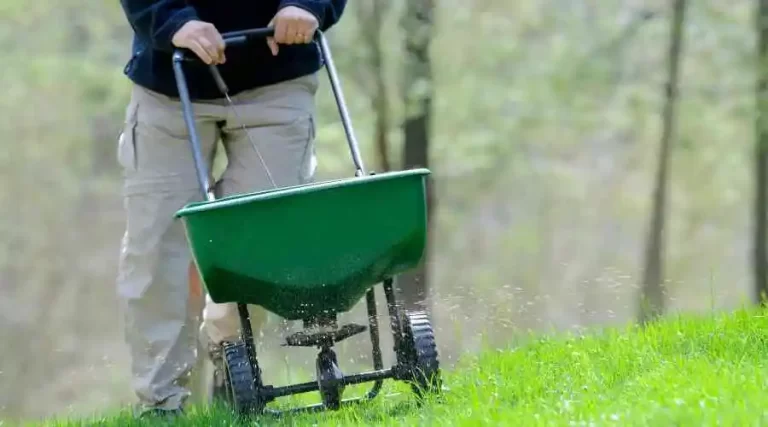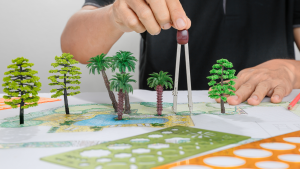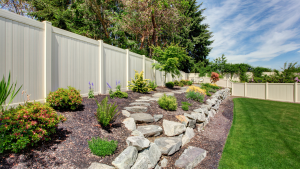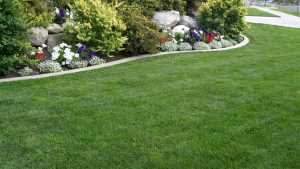Although watering your grass may seem like a straightforward operation, underwatering and overwatering can both be detrimental to your lawn and other landscaping. Too many property owners unknowingly overwater both their lawns and landscaping. Take the necessary actions to prevent overwatering and all the issues that come with it. These actions include understanding your soil type, planning your watering schedule, keeping an eye on your irrigation system, and looking for typical overwatering warning indicators. We will examine each of these actions in more detail in the sentences that follow.
Knowledge of Soil Type
In many ways, the type of soil you have can determine how much water your landscaping will require. This is why understanding your soil type might help you decide whether you are watering your plants excessively. For instance, sandy soil drains swiftly. On sandy soil, simply providing extra water won’t help plants or trees grow because the water will simply drain below the roots. Conversely, when wet, clay soils have a tendency to grow heavy and can actually impede plants from obtaining enough moisture for the roots. On top of clay soil, water has the propensity to pool quickly, causing wasteful runoff. There are four other varieties of soil, and each has a different requirement for water. Visit this helpful page to find out more information about them. You can either hire experts to aid you or test your own soil to find out what kind you have.
Plan your watering times.
Establishing a watering schedule is one of the greatest strategies to prevent overwatering your landscaping. If you have an automatic sprinkler system, fixing the problem might be as easy as changing the settings. Find out more about the benefits of sprinkler automation systems here. It is still ideal to water at roughly the same time of day and on the same days of the week if you are doing it manually. Water your grass and other plants in the morning for optimal results. This will lessen water waste and evaporation. To avoid giving your plants too much water, it’s also crucial to modify how frequently you water. For instance, the average lawn requires an inch of water per week, though this might change based on your location, the type of grass you have, and how hot it is outside. In most circumstances, watering your grass twice a week for about 30 minutes is the best routine. But, it’s crucial to inspect your soil after 15 minutes and to cease watering when it is damp around six inches below the surface. Water trees and bushes until the soil is wet 8 to 12 inches below the surface. Visit this page to learn more about watering schedules.
Related Subject: Landscaping Work Carried Out by the Baton Rouge Landscape Service Following a Storm
Keep an eye on your irrigation system.
With an automatic sprinkler system, “set it and forget it” may be simple to do. One of the primary benefits of these systems is that they make daily lawn and garden maintenance easier. Nevertheless, employing this strategy might result in difficulties such as soil erosion and dead plants in addition to water waste. It’s crucial to routinely inspect your irrigation system to make sure it is operating properly in order to prevent overwatering your landscaping. Turning on your system and checking each sprinkler head for leaks, bubbles, or improper spray patterns is one approach to check your system independently. A damaged sprinkler head or underground pipe may be indicated by dry patches or puddles in your yard as well as by an excessive amount of running water. It could be time to contact the irrigation experts if you spot any possible problems.
Check for overwatering warning signs
Knowing the signals and keeping an eye out for them are crucial ways to prevent overwatering your landscaping. A lawn or landscape that is receiving excessive watering will frequently display signs such as permanently damp soil, leaves that turn yellow or have brown areas or edges, or stem bases that feel mushy. It’s crucial to reevaluate and modify your watering plan as soon as you see any of these symptoms. But you may also keep an eye out for overwatering in your landscaping before it starts to harm the health of your plants. Check your soil after watering once a month to make sure that water is getting to the roots without pooling or running off. You can also improve the moisture retention of your soil by amending it, which might help you need less water overall.
Receive expert watering assistance
It can be difficult to determine your ideal soil type and watering regimen. Getting your watering schedule and amounts right requires time and effort, even with the necessary information. Wouldn’t it be fantastic to have someone assist you with your landscaping and watering requirements given that we are aware of how busy you are with your family and life’s numerous demands? Baton Rogue Landscape Pros experts provide expert assistance for all of your landscaping requirements, including sprinkler systems, lawn care, and more. Get a quote right away to discover more about our excellent services!





